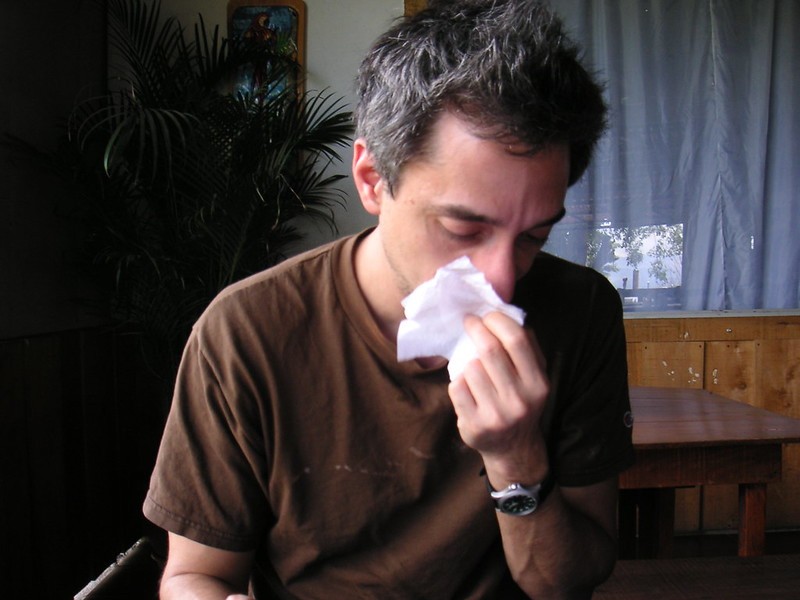
The number of COVID-19 cases in the world has reached more than 300,000 over the weekend, with over 14,000 fatalities worldwide. This was reported by John Hopkins University, adding that China, Italy and the United States have the most number of people diagnosed with the pandemic.
Due to the dramatic increase in figures each day, more and more people are worried about their health. It has even come to the point that one can't help but link a simple sneeze and slight fever to COVID-19
This is the season of allergy and flu hasn't exactly been cleared yet. More so, it hasn't stop COVID-19 from spreading not just throughout the nation, but the whole world, as well. In relation to this, the COVID-19 symptoms may include dry cough, shortness of breath and fever.
Nevertheless, the said symptoms are somewhat similar to other illnesses like flu and allergy. This is the reason why people should know how to distinguish COVID-19 from other illnesses.
ALSO READ : What Effect Does Vitamin C Have With Colds?
Differentiating COVID-19 from Other Illnesses
Ascension Texas chief medical officer, Dr. Maria Ganzotti has broken down the differences between COVID-19, strep, cold, flu and allergies to put people's minds more at ease before they consult the doctor. One has allergies if he is from a runny nose, swollen and red eyes, sneezing, tickly throat, itchy eyes, and fever (but not always).
Meanwhile, for strep, a person usually experiences pain when swallowing, sore throat and fever. For flu, as Dr. Ganzotti indicated, "fever is common." Other symptoms include dry cough, sore throat, headache, occasional feeling of runny nose, and sometimes, experience diarrhea.
It is important to note that COVID-19 symptoms include fiver (with a temperature of above 100 degrees), shortness of breath, dry dough, occasional headache, and sometimes pains and aches in other parts of the body, rare diarrhea, occasional feeling of fatigue but not as predominant as with the flu, and mild sneezing.
Treating the Flu and Allergies

If you have been feeling ill that you've got a sore throat, and you're sniffling and sneezing, chances are, you're suffering from allergies or the flu. However, it may be difficult to set the symptoms apart and determine which one falls under which.
Also, sometimes the illnesses share common symptoms. But if you know the difference, you can also choose which treatment is best to engage in.
If you already know the type of illness that you have, you surely won't take the drugs you don't actually need, are not effective, or might even trigger the symptoms.
Flu, allergy and cold all impact your respiratory system which can also lead to difficulty in breathing. Each condition has prominent symptoms that set the illnesses apart.
The Flu and a cold, on the other hand, are results of different viruses. Health experts have it that, as a rule of thumb, the symptoms linked to the flu are quite more severe. Both illnesses result in stuffy, runny nose; cough; sore throat; and congestion.
However, the flu can also lead to high fever lasting for up to four days along with general aches, pain, fatigue, and headache.
If you have flu or colds, you can treat it by having complete rest and finking lots of fluids. Specifically for the flu, taking pain relievers like acetaminophen, ibuprofen or aspirin, can help reduce aches or fever.
Allergies, on the other hand, can be treated with decongestants or antihistamines. You need to be careful too, to prevent drug overdose when you take medicines that contain two or more active ingredients on its label.
For instance, if you take two kinds of medicines containing acetaminophen, one for headache and the other for stuffy nose, you may be taking too much acetaminophen.
© 2025 ScienceTimes.com All rights reserved. Do not reproduce without permission. The window to the world of Science Times.












